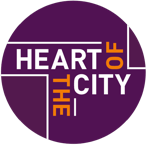We spoke to Liene Zigure, head of finance and operations at Shoreditch-based digital agency WeAgile. She’s been working there since WeAgile started around four years ago.
The business case for going net zero
“Obviously if you want to take your CSR action seriously, the environment has to be a part of that.”
WeAgile decided to do our course, Climate for SMEs: 4 Steps to Action, because they were already doing work around other responsible business areas and had been on our Foundations for Responsible Business programme for a few years. They do volunteering, pro bono work for charities and free marketing webinars, but Liene had been thinking about WeAgile’s environmental impact. She wanted to start working on reaching net zero but found there was so much information online that she found it overwhelming.
Liene knew that WeAgile needed to be working towards net zero for the good of the planet and for them as a business. She read a British Business Bank study that estimates that SMEs account for 43-53% of UK business greenhouse gas emissions.
“If we want to get to net zero as a country, I can’t imagine getting there without SMEs doing something”, said Liene. The UK government doesn’t currently have any climate reporting requirements for SMEs, but Liene feels that soon, they will. That’s why it made sense to WeAgile to get ahead of that – they don’t want to be overwhelmed if that does happen.
So, they started the course in January 2022 and finished it 12 months later with a carbon footprint baseline and a plan to reach net zero by 2040. They’ve published their action plan on their website, where they have a page dedicated to sustainability to share their progress publicly and keep themselves accountable.




